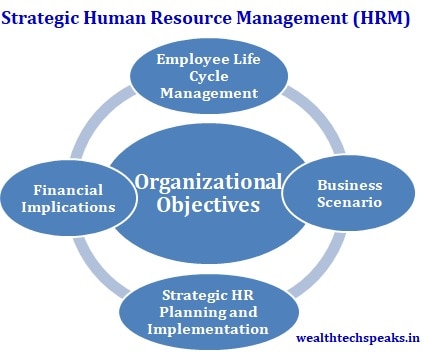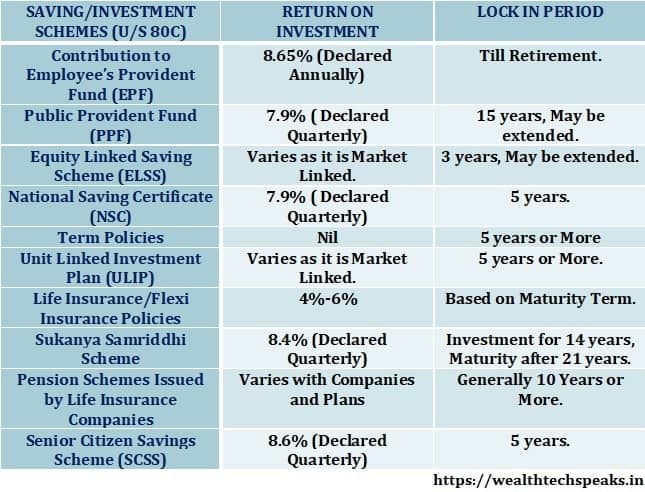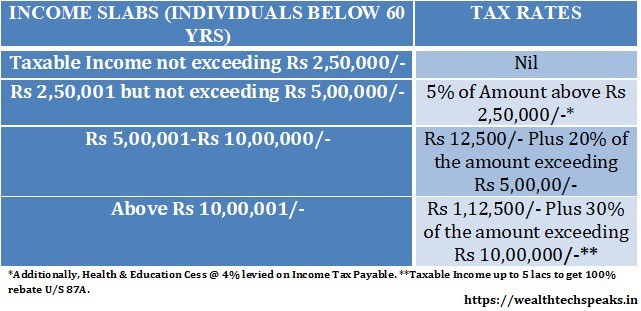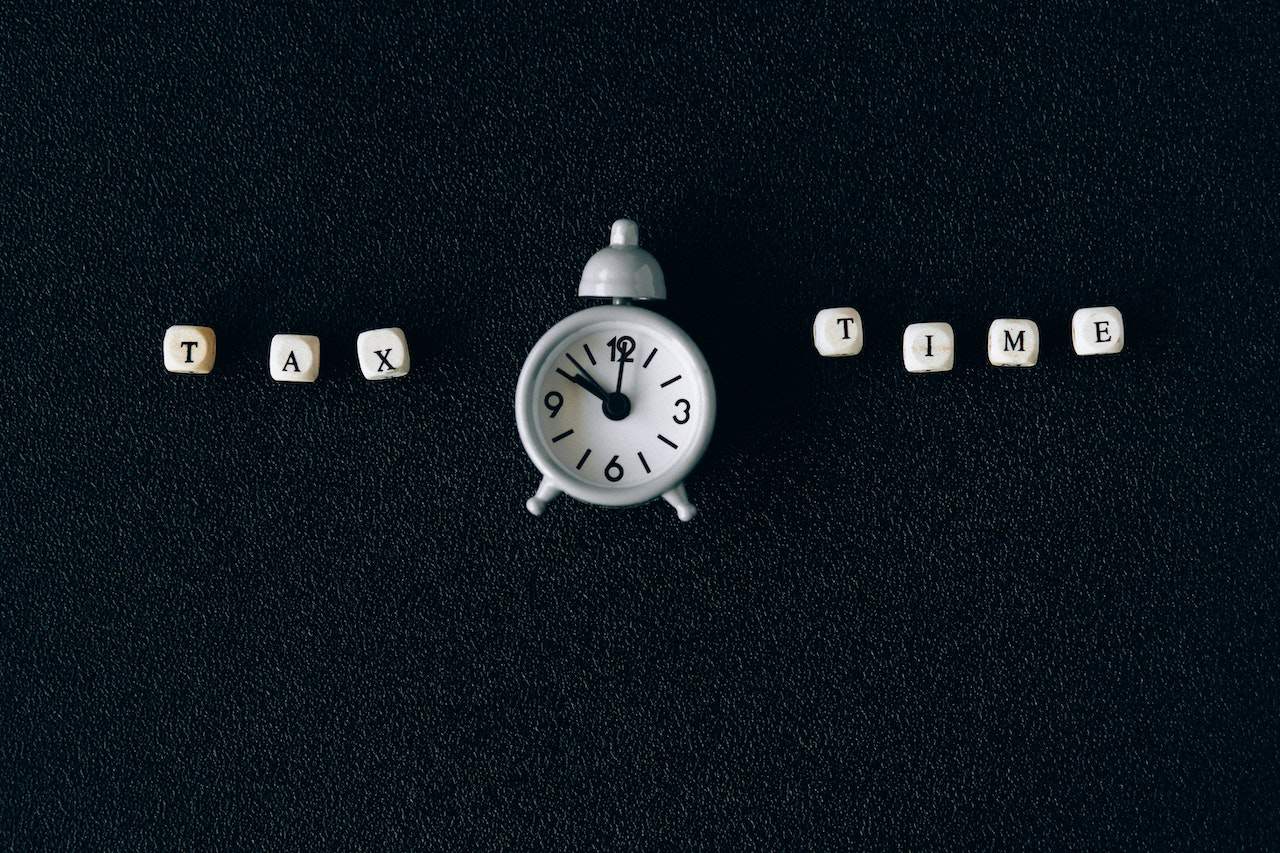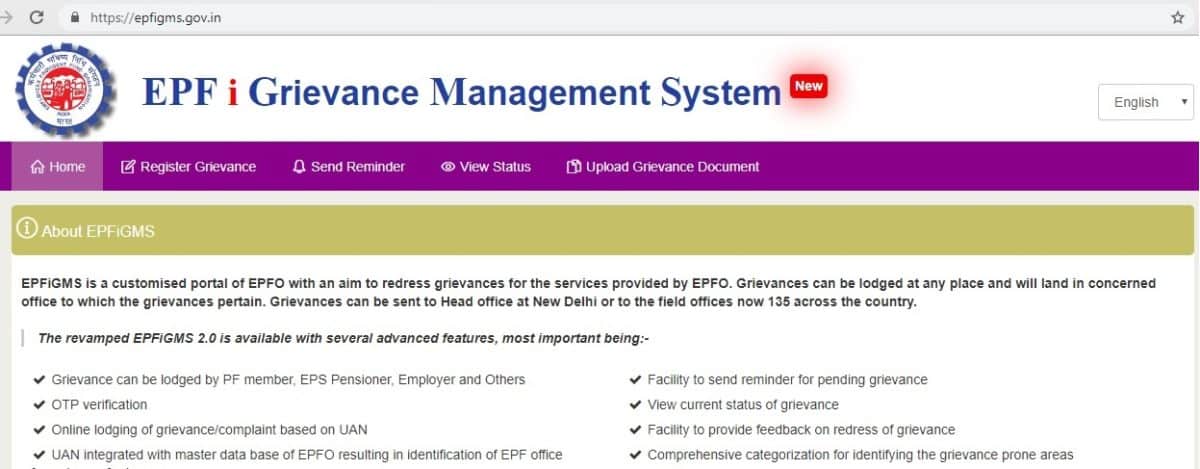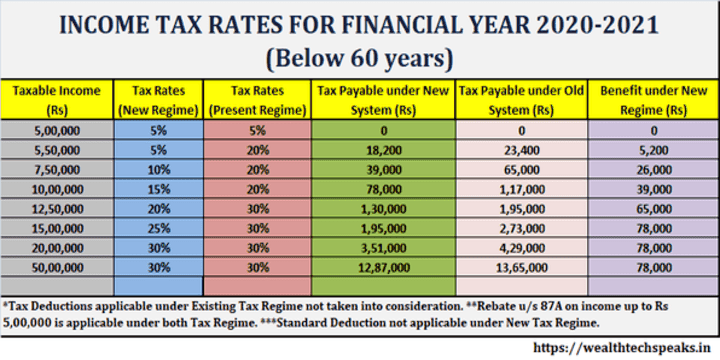
Income Tax Financial Year 2020-2021 (AY 2021-22): Tax Implications
- Posted By Amritesh
- On March 31st, 2020
- Comments: 9 responses
Personal Income Tax has undergone drastic changes for the Financial Year 2020-21. New Tax Regime has been proposed, in continuation with the Existing Tax Regime. Individuals now have the option to choose between these two Tax Regimes, the existing tax regime remains unchanged while the new tax regime comes with new slabs and reduced rates. Under the existing regime Individuals will continue to enjoy the Tax Breaks, but new tax system does not have provision for such tax breaks. However, under the newly proposed Tax Regime, the tax rates have been reduced significantly to provide benefits to the Individual Tax Payers, not looking to avail Tax Deductions. The new tax system will benefit Individuals who are not interested in availing Tax Breaks or do not want their investment decision to be based primarily on the tax incentives.
New Tax System Financial Year 2020-21
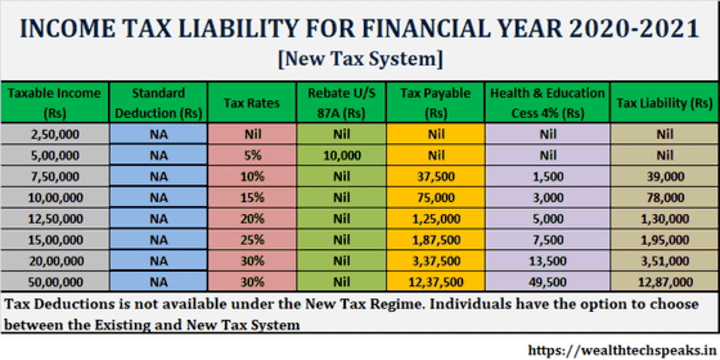
Income Tax Liability calculation is simple under the New Tax System. The Tax Payer benefits by paying tax at a reduced rate. However, as many as 70 tax exemption is not available under the New Tax System. Tax Payers have the option to choose between the New Tax System and the Existing Tax System, for filing their income tax returns for the FY 2020-21.
Individuals need to analyze their financial goals as well as tax out go under each system and opt to file returns under the most viable tax regime. New Tax System is simple and ideal for Individuals not interested in claiming Tax Deductions.
Deductions which Tax Payers need to forego under the New Tax Regime.
1.) Standard Deduction of Rs 50,000/-
2.) Leave Travel Allowance
3.) House Rent Allowance
4.) Deductions u/s 80 TTA & B (Interest Income)
5.) Deduction on Entertainment Allowance
6.) Deduction under Family Pension up to Rs 15,000/-
7.) Deductions under Chapter VIA which includes Tax Deductions U/S 80C, 80D, 80CCD (1B), 80E, etc is not available.
8.) Interest paid on Home Loan is not available for Deductions.
Tax Payers may calculate the Tax implication using the Tax Calculator provided on the Income Tax portal.
However, Tax Rebate u/s 87A is applicable to the Individuals under the Existing and as well as New Tax Regime.
Existing Tax System Financial Year 2020-21
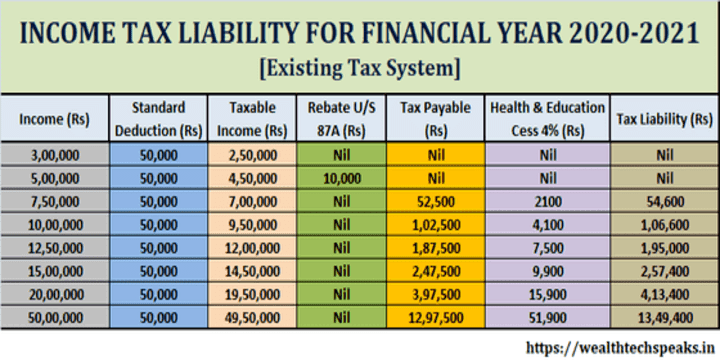
Income Tax Liability calculation for Salaried Individual (below 60 years of age) for the Financial Year 2020-21 has been discussed below, post Budget 2020. The Income Slabs and Rates remain unchanged for the Assessment Year 2021-22 (FY 2020-2021). Standard Deduction remains unchanged at Rs 50,000/-, Tax Rebate under Section 87A is available up to Rs 12,500/-. Thereby, Individuals with Taxable Income up to Rs 5 lacs are exempted from Income Tax.
Standard Deduction of Rs 50,000/- is a flat deduction from the Salary Income of an Individual. Health & Education Cess @ 4% is levied on Income Tax Payable.
Income up to Rs 2,50,000/- is exempted from Income Tax.
Tax Rebate U/S 87A up to Rs 12,500/- is available to Individuals with Taxable Income up to Rs 5,00,000/-.
Tax Deductions : Income Tax Calculation (Under Existing Tax Regime)
Individuals with income above Rs 5,00,000 may avail Tax Deductions under 80C, 80D and 80 CCD (1b) to reduce their Tax Liability. This would enable Individuals with income up to Rs 8,25,000/- save tax on their earnings. (Additional Rs 50,000/- Tax benefit is available on Health Insurance premium paid for Senior Citizen Parents). Individuals repaying home loans may claim additional deduction on the interest paid towards the home loan.
Tax Deduction U/S 80C: Tax Deduction up to Maximum of Rs 1,50,000/- is available on Investment in Life Insurance policies, Public Provident Fund (PPF), Equity Linked Saving Schemes (ELSS), National Savings Certificate (NSC) and other notified instruments.
Tax Deduction U/S 80D: Tax Deduction up to Rs 25,000/- is available on Health Insurance Premium paid for Self, Spouse and Dependent Children. Tax Deduction increases to Rs 50,000/- on health insurance premium for Senior Citizens.
U/S 80CCD (1b): Tax Deduction up to Maximum of Rs 50,000/- is available on investment made towards National Pension Scheme (NPS). This is also applicable on Contribution made towards the Atal Pension Yojana (APY).
Income Tax Post Tax Deduction under Existing Tax System
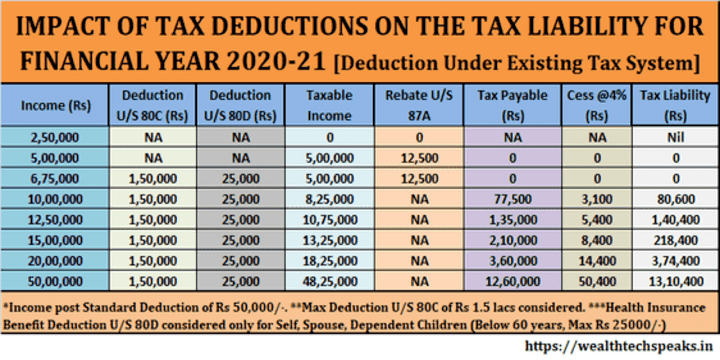
Tax Payers may reduce their tax liability under the Existing Tax Regime by availing the Tax Deductions available u/s 80C, 80D & 80CCD (1b). Individuals with income up to Rs 6,75,000/- availing full deductions u/s 80C, 80D & 80CCD (1b) will not be required to pay tax on their income.
This article is for informational purpose only. Readers are advised to research further to have detailed knowledge on the topic. It is very important to do your own analysis and consult your Financial Advisor before arriving at any conclusion.

